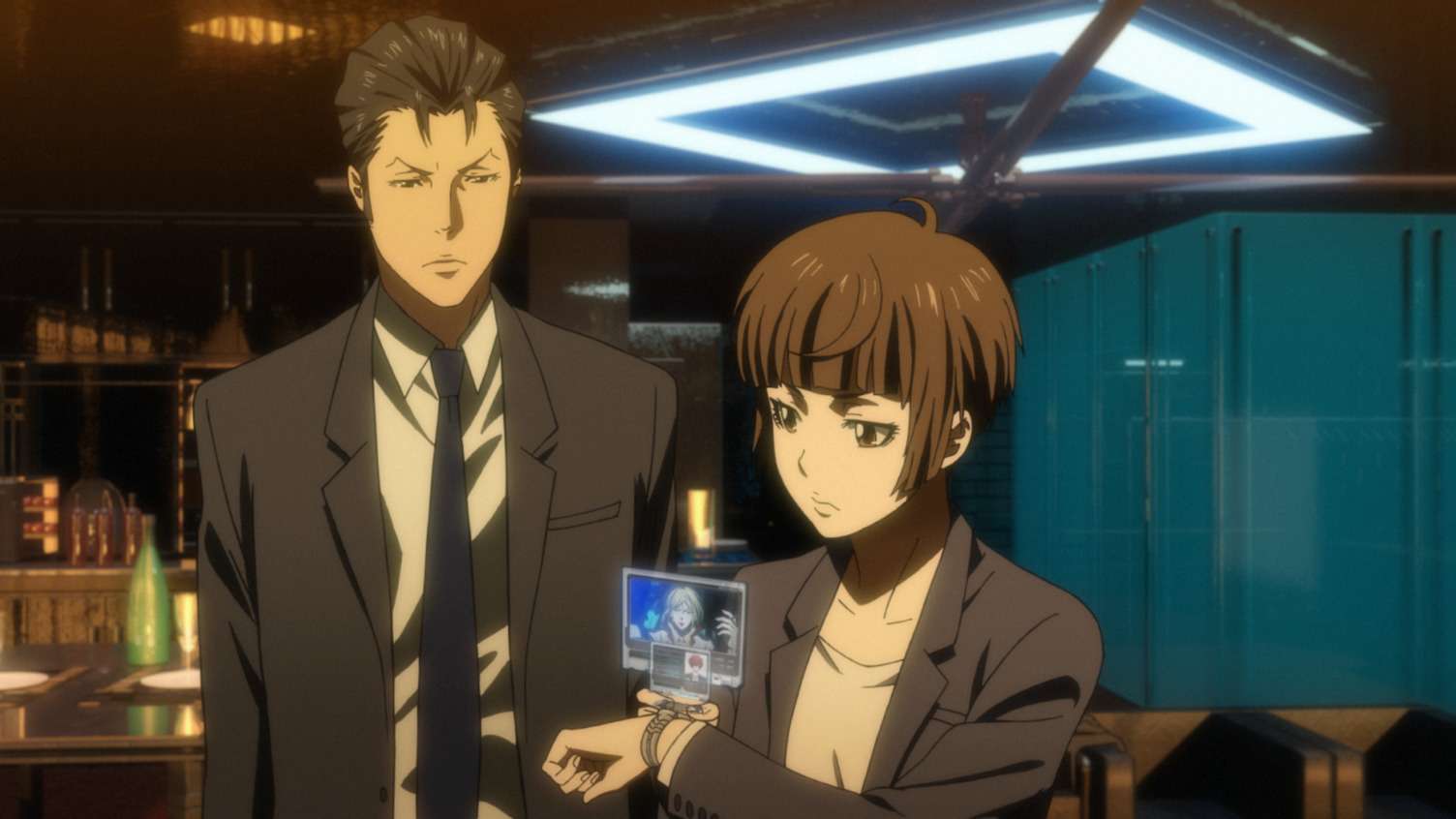Psycho-Pass Providence (2023) Movie Review: Contains spoilers for the Psycho-Pass franchise.
Ridley Scott’s Blade Runner inspired a string of aesthetically-similar media, molded within the ambit of a dystopian world with futuristic rules and complexities. There’s a reason Philip K. Dick’s world remains the OG blueprint to this day: it tackles AI-human relations in a mature, nuanced way without sacrificing the core of what makes us human while offering prescient commentary about power, creation, and the true cost of empathy.
Among the many, many animated offerings that were inspired by Blade Runner’s ethos is Psycho-Pass, which takes the core premise one step further by making things intensely thought-provoking and political. While Blade Runner’s replicant problem still feels like a distant reality, the crime drama that Psycho-Pass revolves around raises crucial questions about state control and homogeneous standards of morality.
Psycho-Pass Providence fills out the gaps between seasons 2 and 3 of the anime series, situating inspector Akane Tsunemori yet again as the central protagonist, with Shinya Kogami returning to the Ministry of Welfare and Public Safety Bureau after committing a crime.
This crime in question is worth scrutinizing in its own right — while the film trusts viewers to rely on their Psycho-Pass knowledge. Even newcomers will become aware of such arbitrary labels in this world that come with unfair judgments and conditions. Moreover, it is clear Akane has evolved and matured over the seasons, but Psycho-Pass Providence intensifies her qualms with the Sybil System, ending the film on a firm point of no return, which cements who she is as a person.
Films that are meant to act as a bridge between established anime series often edge toward filler territory, but Psycho-Pass Providence is anything but. This is an essential bridge created to welcome fresh viewers and enthrall existing fans, as it banks on existing characters to explain the intricacies of the world so reliant on an artificial computer network for mere survival. Those unaware of the anime’s basic premise will struggle to keep up: while this is surely a drawback, the film makes up for it with fast-paced semi-expositions and fleshed-out characters that make morally-conflicting decisions every waking moment.
The heart of Psycho-Pass is the Sybil System: a computer network that scans the general population in Japan and predicts their probability of committing a crime, which is judged with a Crime Coefficient (CC) Index. If someone’s CC is above 100, they’re either apprehended or killed, depending on the situation, while personally-activated guns named Dominators automatically detect these scores and use the AI to make a judgment call.
This makes matters uneven and complex: for instance, in season 1, Akane encounters a woman whose CC skyrocketed after she underwent intense trauma — pragmatically speaking, she might have crossed the CC threshold and would be deemed a threat that needs to be eliminated. However, after Akane speaks to her gently and helps soothe her, her CC plummets.
This exposes a glaring problem in the Sybil System: judging people based on their thoughts alone is a major disservice to the human range of emotions, which can flit and are subject to change every second. The thought of committing a crime is just a thought until it’s actually carried out, and this predictive elimination model proves arbitrary, brutal, and incomplete.
Psycho-Pass Providence highlights this issue in convincing ways by introducing new antagonists who wish to shape the world as per their own convictions. A clear standout is Kai/Akira, a mysterious figure who seems to be working for the main antagonist but is revealed to be a tortured, conflicted man in the literal sense of the term.
Every scene Akira is in elevates the film to dramatic heights, as his presence alone is enough to keep the wheels rolling, even when he’s simply looking into the mirror and surveying his burnt visage, shaking with the anxiety of living a double life. The Akira vs. Kogami fight is pure cinematic brilliance, where artificial backdrops are used to enhance the stakes and underline the true motivations of both parties involved.
In terms of animation, Providence is, frankly, uneven. For the most part, it roots itself in grandiose battle sequences that do justice to the premise. But in others, there’s an uncanny wonkiness that seeps through in some frames. While this does not mar the experience at all, it does seem out of place.
However, what saves the film are the convincing cast of characters and a story that does not shy away from complexity or nuance — Psycho-Pass Providence compels you to ponder about state surveillance and broken moral codes enforced by the government and what it means to fight while still clinging on to the law. It also shines a light on what happens when you don’t follow the rules: will the effect on society be catastrophic or miraculous? Sometimes, it is both.
Psycho-Pass Providence is a necessary bridge between the mothership anime seasons, where it allows its premise to be studied, dissected, and mulled over. The terrors of the Sybil system still loom large, affecting everything from immigration to collective psyches, which in turn, shape the kind of society we live in. In the end, we are more than our Crime Coefficients, as humans are capable of remorse and restraint — even when we’re not, it is crucial to scrutinize on a case-by-case basis, as sometimes, killing might be a by-product of self-defense, and in this case, saving the world.




![White Snake [2019]: ‘NYAFF’ Review – A Fable Told with Breathtaking Animation](https://79468c92.delivery.rocketcdn.me/wp-content/uploads/2019/07/White-Snake-highonfilms-768x432.jpg)




